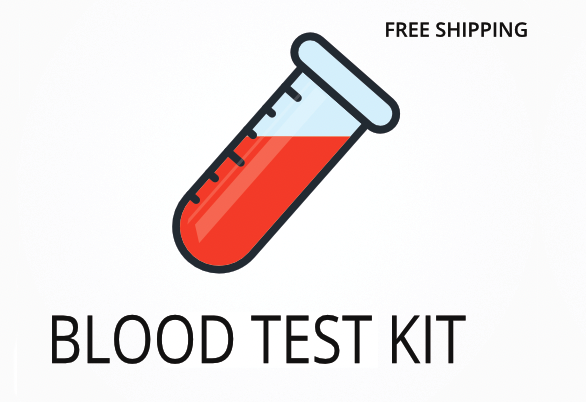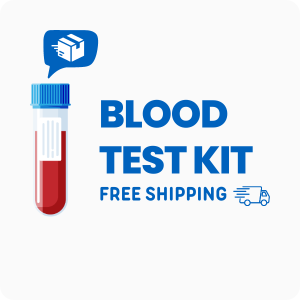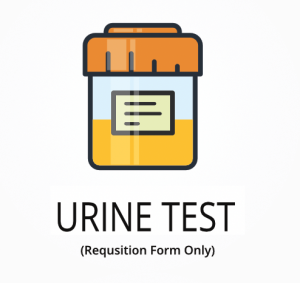Ordering the Babesia Panel 2 | IgeneX
Babesia Panel 2 | IgeneX helps detect Babesia infections, which are tick-borne parasites that can affect red blood cells and often occur alongside Lyme disease. This test is especially useful for people who have symptoms like fever, chills, fatigue, muscle pain, or unexplained anemia after a possible tick bite. Interestingly, Babesia infections can sometimes cause symptoms that mimic other illnesses, making targeted testing important for proper diagnosis.
Ordering this test can help you:
- Identify Babesia microti and Babesia duncani infections with both antibody and DNA-based methods
- Detect early and late-stage infections using IgG, IgM, PCR, and FISH markers
- Support your healthcare provider in choosing the right treatment plan
- Monitor for co-infections that may complicate recovery from tick-borne diseases
- Reduce the risk of ongoing symptoms by confirming or ruling out Babesia as a cause
Who Should Consider Babesia and Tick-Borne Parasite Testing
People who have spent time in wooded or grassy areas and later develop unexplained fatigue, fever, or joint pain may benefit from this test, especially if they recall a tick bite or have symptoms that do not improve with standard care. For example, someone who enjoys hiking and later experiences night sweats, headaches, and muscle aches that persist despite rest and hydration may want to consider this test to check for Babesia infection.
Ordering this test may also be helpful in these situations:
- After a tick bite with ongoing symptoms like chills, weakness, or appetite loss
- When Lyme disease has been diagnosed but symptoms continue despite treatment
- If you have unexplained anemia, jaundice, or spleen enlargement
- For people with immune system challenges who are at higher risk for tick-borne infections
- When someone has heart palpitations or confusion that started after outdoor exposure in tick-prone areas
Testing for Babesia can help pinpoint the cause of symptoms and guide your provider in choosing the right next steps, especially since untreated Babesia can lead to longer-lasting or more severe problems if not addressed early.
How to Prepare for Tick-Borne Parasite and Babesia Testing
Fasting is not required for this test, so you can eat and drink as usual before your blood draw. Always follow any specific instructions your doctor or healthcare provider gives you to make sure your sample is collected correctly and your results are as helpful as possible.
Labs Included When Ordering Your Babesia Panel 2 | IgeneX
| Test Name | Reference Range | What This Test Measures | Low and High Levels of This Marker |
|---|---|---|---|
| Babesia microti IgG IFA | Negative: <1:40 Equivocal: 1:40 Positive: >1:40 |
This test checks for IgG antibodies to Babesia microti, showing if your immune system has responded to this parasite. It helps identify both current and past infections. |
High levels mean your body has been exposed to Babesia microti, possibly indicating a current or past infection.
Low levels mean there is little or no evidence of exposure to Babesia microti. |
| Babesia microti IgM IFA | Negative: <1:20 Equivocal: 1:20 Positive: >1:20 |
This test measures IgM antibodies to Babesia microti, which usually appear early in infection. It helps detect recent or active infection. |
High levels mean a recent or active Babesia microti infection is likely.
Low levels mean there is no sign of a recent Babesia microti infection. |
| Babesia duncani IgG IFA | Negative: <1:40 Equivocal: 1:40 Positive: >1:40 |
This test looks for IgG antibodies to Babesia duncani, another species that can cause similar symptoms. It helps confirm exposure or infection with this specific parasite. |
High levels mean you have been exposed to Babesia duncani, which may indicate a current or past infection.
Low levels mean there is little or no evidence of exposure to Babesia duncani. |
| Babesia duncani IgM IFA | Negative: <1:20 Equivocal: 1:20 Positive: >1:20 |
This test measures IgM antibodies to Babesia duncani, which are usually present during early or active infection. It helps detect new or ongoing infection. |
High levels mean a recent or active Babesia duncani infection is likely.
Low levels mean there is no sign of a recent Babesia duncani infection. |
| Babesia PCR Panel | Negative: Not detected Positive: Detected |
This test detects Babesia DNA in your blood, confirming the presence of the parasite itself. It is useful for identifying active infections, even before antibodies develop. |
High (Detected) means Babesia DNA is present, confirming an active infection.
Low (Not detected) means no Babesia DNA was found, suggesting no active infection. |
| Babesia FISH | Negative: Not detected Positive: Detected |
This test uses a special stain to find Babesia parasites in red blood cells. It helps confirm active infection, especially when other tests are unclear. |
High (Detected) means Babesia parasites are seen in your blood, confirming infection.
Low (Not detected) means no Babesia parasites were found in your blood sample. |
Reference ranges may change slightly as labs update their methods, so always check your report for the most current information.
Babesia Panel 2 | IgeneX FAQ
Is there Babesia Panel 2 | IgeneX testing near me?
This is a test kit that you can use at a local blood draw site—check the draw location link at the top of the page. Since Babesia symptoms like fatigue and confusion can make travel difficult, having a nearby collection site makes the process easier and more accessible.
How do I interpret the test results?
While your treating physician should always review your results, we also offer a one-on-one test results review with our clinical team to help you understand what your results mean and what steps you can take next.
What is the cost of the test?
The price you see for this test includes standard shipping to you and back to the lab, but local draw fees may apply. Ordering this test can help you find out if Babesia is causing your symptoms, so you can start the right treatment sooner.
How often should I retest?
Retesting is usually recommended every 3-6 months if you have ongoing symptoms or are being treated for Babesia or related tick-borne infections. Regular testing helps track your progress and ensures that any changes in your condition are caught early.
How accurate is the test?
Babesia Panel 2 | IgeneX uses IFA, PCR, and FISH methods for detection. The PCR method has a sensitivity of 92% and specificity of 99%, while IFA and FISH methods are also highly sensitive and specific for Babesia species. TrueHealthLabs.com partners with CLIA-certified and CAP-certified laboratories to uphold rigorous testing standards for dependable results.
Important Notes
None.
Medical Review Board
Reviewed by Jeff Donohue M.D. from Body Logic and Brady Hurst DC, CCCN. Written by True Health Lab’s team of editorial health contributors.
Disclaimer: This information is for educational purposes only and not intended as medical advice. Consult your healthcare provider for personalized guidance.
Why Customers Trust True Health Labs – What People are saying
Also rated 4.6 out of 5 based on 3452 ShopperApproved reviews- See all TrueHealthLabs.com reviews.










